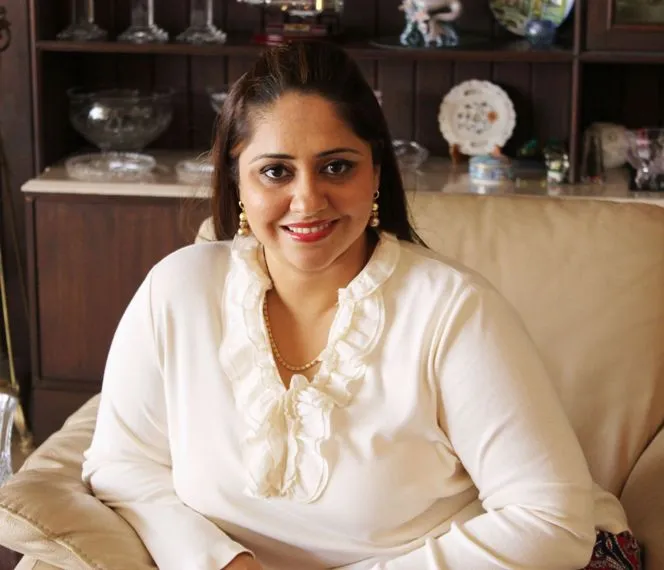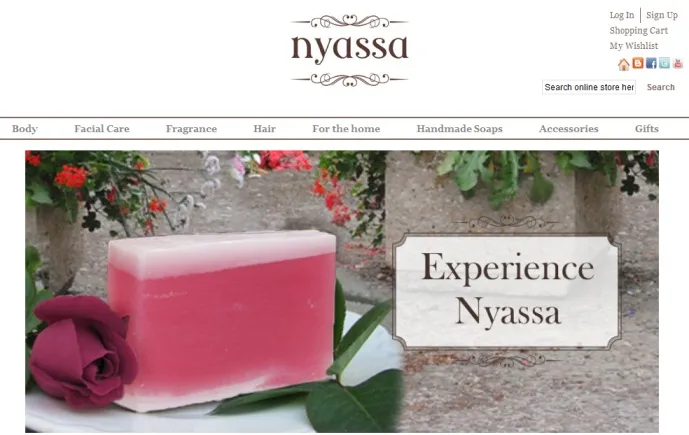An entrepreneur is one who follows her passion. Like Ishween Anand did to startup Nyassa
Whenever we feature a women entrepreneur’s story, we always ask her if things have been any different or difficult for her as a woman? And we have always been answered in negative. Women across all fields of life today in India are able to demonstrate excellence and we are very happy to bring stories of such inspirational women entrepreneurs to our readers.
One such today is about a CA and MBA turned entrepreneur, who found the process of drafting M&A proposals too much of a drudgery and gave it all up for her love of fragrances. Nyassa’s founder and owner Ishween Anand, a qualified C.A. and MBA from Stern School of Business, New York, left her job at E&Y, USA to pursue her passion for fragrances and started Nyassa in April 2007. Ishween found the number crunching, long hours of work and unending travel to have no meaning after a point in time. While she continued the routine work, every weekend she would look forward to her weekly escape to the farmers market, where she could see the large variety of natural bath and beauty products being sold. Her love for fragrances also made her take up a course in making natural soaps. “It was very hard to find someone who could teach soap-making, because this process is mostly restricted to factories and manufacturing units,” explains Ishween. But after four years of searching, she finally found a lady who taught her the art.
After E&Y, Ishween joined Avon, the beauty products company in their finance department. Here she got a first-hand experience of how things work in a beauty products company. When she decided to move back to India, Iahween was to join Avon in India, but life had other plans for her. “The business head whom I was to report to suddenly quit and as a result the company decided to shut office and I was out of job,” recollects Ishween. Returning to US was an option, but Ishween had her heart set at something else.
Beginning of a new journey

Ishween decided to start her own business of manufacturing handmade bath and beauty products. However she could not do it on her own because she did not have an FDA license, which is a pre-requisite for anyone entering the personal care business in India. “I then hired a chemist who had the license and we made our first batch of products in March 2007,” says Ishween.
Once the products were ready, came the difficult part of finding customers for the product. Her husband suggested she talk to owners of Atria mall – an upmarket mall in central Mumbai – to allow her to sell her soaps there. “Within an hour of discussion the owners were convinced and allowed me to sell Nyassa products on the weekends at their food court,” says Ishween. This proved to be a masterstroke, because within the first week of setting up stall at Atria, Ishween received orders from merchandisers like The Bombay Store and Reliance Wellness. Within a month, Nyassa products were being sold across 12 Reliance Wellness outlets, because they were very different.
Ishween has also been fortunate in terms of people. Being a handmade and natural products business, Nyassa has the bulk of its team in manufacturing – viz is 20 people. The other 35 people are spread between retail and administration. “I am happy that 80% of the original team is still intact,” says Ishween.
A chain of her own
Products in large retail stores tend to get lost if not positioned and placed at the correct location. And getting a prominent display, at customer eye level and where there are maximum footfalls is a constant fight between brands and retailers. This challenge made Ishween start her own chain of stores and she opened the first one in Khar, Mumbai. “When you have to build a brand, it is very important that you have a control over the experience you provide and how your products look and feel and that can only be possible in your own store,” says Ishween. Today Nyassa has six stores across Mumbai, Hyderabad, Pune and Nasik. Nyassa is also being sold through franchisees in Indore, Delhi and Goa. And they are also available at all Shoppers Stop and Westside outlets.
Apart from having a control over the brand experience, Ishween says setting up own stores is important to reassure distributors that we are here for the long run and are here to stay. A larger variety of products can also be displayed in when you have your own store. Today Nyassa offer 160 units across soaps, lotions, face wash, air freshners and more. Besides individual products, customers can also choose to gift a collection of products as a gift hamper.
Marketing the brand
Ishween says Nyassa is currently undergoing the process of rebranding and repositioning and the new brand will be unveiled in couple of months. Ishween says Nyassa has the positioning of being from heaven and earth, which means it is a combination of fragrances which are heavenly and made from good materials provided by Mother Nature.
So far marketing for the brand has mostly been through below-the-line activities like sampling and exhibitions. Presence in outlets like Shoppers Stop and Westside generates good visibility for the brand. Nyassa has a continued presence in Khar gymkhana – a well known gym in Western Mumbai. Nyassa also participates in a large number of exhibitions in Tier 2 towns like Vizag, Raipur, Jodhpur and Ishween says people attending the exhibition tend to buy the products in bulk. “Unlike big cities, where customers think they can buy the product next week or next time when the go shopping, in small towns they tend to stock up at the exhibition itself,” explains Ishween.
A good part of Nyassa products is also sold through online portals like Snapdeal.com, Pepperfry.com and Flipkart.com among others. eCommerce has helped carry Nyassa to cities like Guwahati, Vijayawada, Calicut and Kochi, they neither have presence through physical shops or exhibitions. Nevertheless, sales at brick-and-mortar stores still continue to dominate the numbers for Nyassa. And Ishween says each Nyassa store does business anywhere in the range of Rs 2 lakh – Rs 4 lakh per month.

Future plans
Ishween says she will open more stores across the country. Partnering with five-start hotels and boutique hotels to supply her products to their locations is also on cards. “Sula wines became well-known when Taj started serving them. Similarly we want to supply our products to hospitality chains and spas where customers can ask for the Nyassa brand,” says Ishween. They venture already has a manufacturing unit to produce its products and Ishween says they are looking at setting up another three in coming six years.
However expansion of business is not the biggest challenge she faces. Being ahead of the curve and ensuring they can make the next best thing available to their customers is a bigger challenge according to Ishween. “I travel atleast four times a year to see what are the trends in the market. R&D and product development is always the top of mind for us. We have a new product launch every three months. To be able to maintain a high standard of quality in good quantity is most important to our business,” explains Ishween.
To our question of whether she would have succeeded if she had started up something in financial services rather than Nyassa, Ishween says: “I think an entrepreneur is one who loves what they do. If you have a great product and are value for money, customers will choose you. Most of my customers don’t even know I exist. Having said that, as women I think we bring more focus, passion and honesty to what we do. Even when I am dealing with a vendor who is a woman, there is a better sense of security and a feeling that I can trust them. This feeling is difficult to come across in men sometimes.”







